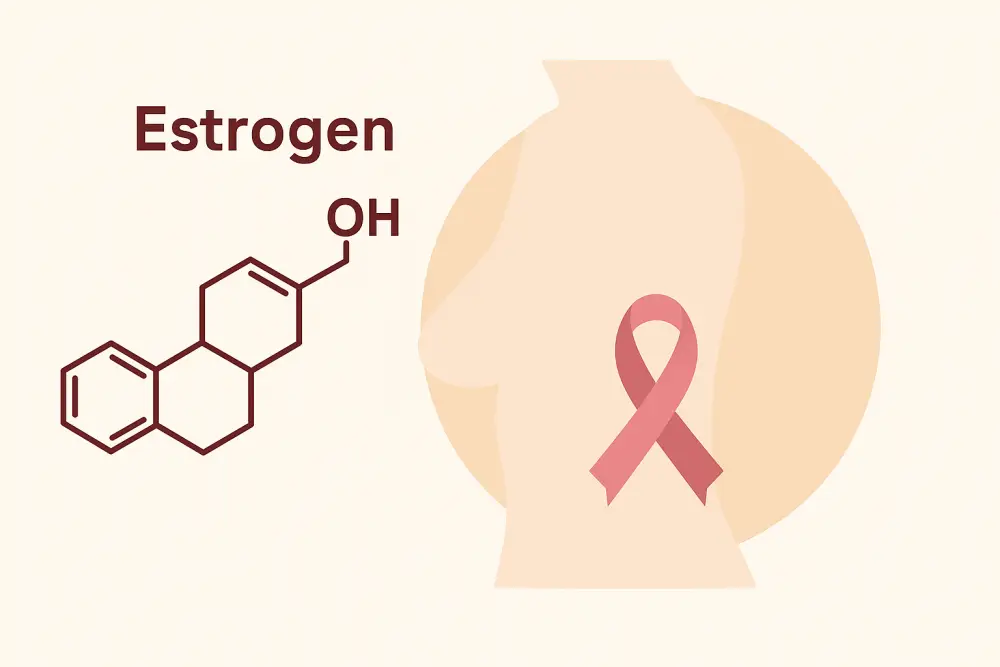Estrogen and Breast Cancer Protection: What the Latest Research Reveals
In recent years, the use of estrogen-progestin therapy to manage menopausal symptoms has been under intense scrutiny, particularly after the landmark Women’s Health Initiative (WHI) study in 2002. The results revealed that women using combined hormone therapy with estrogen and progestin faced an increased risk of strokes, heart attacks, and breast cancer. As a result, many women discontinued hormone therapy and turned to alternative treatments. However, new research has sparked interest in the potential link between estrogen and breast cancer protection.
The WHI Trial and Its Controversial Findings
The pivotal WHI trial included over 17,000 women on estrogen-progestin therapy. It was halted due to serious health risks, including breast cancer. A second phase of the trial, involving 10,000 women who had undergone a hysterectomy and were given estrogen alone or a placebo, received less attention. This estrogen-only trial was also halted early in 2004, leaving questions unanswered about estrogen’s true role in breast cancer prevention.
Recent discussions at the San Antonio Breast Cancer Symposium reignited interest in these findings. According to Dr. J. Ragaz from the University of British Columbia, the estrogen-only results were largely overlooked, despite showing potential protective effects of estrogen against breast cancer.
Estrogen’s Potential Protective Effect
New analysis suggests that estrogen, when taken alone, may actually lower the risk of breast cancer in specific groups of women. For example:
- Among 8,500 women with no family history of breast cancer, estrogen use reduced breast cancer risk by 32% compared to placebo.
- Among 7,600 women without benign breast conditions, such as cysts or lumps, estrogen use reduced risk by 43%.
These findings suggest that there could be a connection between estrogen and breast cancer protection. While preliminary, this research provides reassurance for women with a hysterectomy who are prescribed estrogen for menopausal symptoms. With one-third of postmenopausal women falling into this category, the results are highly relevant to women’s health.
The Need for Further Research
Despite these promising findings, funding for estrogen research has remained limited since the WHI study. Experts such as Dr. J. Manson from Brigham and Women’s Hospital emphasize that these results are still in the early stages. More research is needed to understand how estrogen may protect against breast cancer and how it differs from therapies like tamoxifen.
One theory suggests that estrogen may block the effects of naturally occurring estrogen in the body, acting in a way similar to estrogen-blocking drugs. This hypothesis highlights the importance of continued studies to determine whether estrogen could be safely used as part of breast cancer prevention strategies.

Conclusion: Estrogen and Breast Cancer Protection
The role of estrogen in breast cancer protection remains an exciting yet controversial topic. While recent studies show encouraging results, they should not be taken as medical advice to start estrogen therapy solely for cancer prevention. Instead, women already using estrogen for menopausal relief may find comfort in knowing that estrogen does not necessarily increase their breast cancer risk—and in some cases, may even lower it.
As ongoing research unfolds, the future of breast cancer prevention may include a more nuanced understanding of estrogen’s role in women’s health. Until then, women should consult with their healthcare providers to make informed decisions about hormone therapy and cancer risk.

